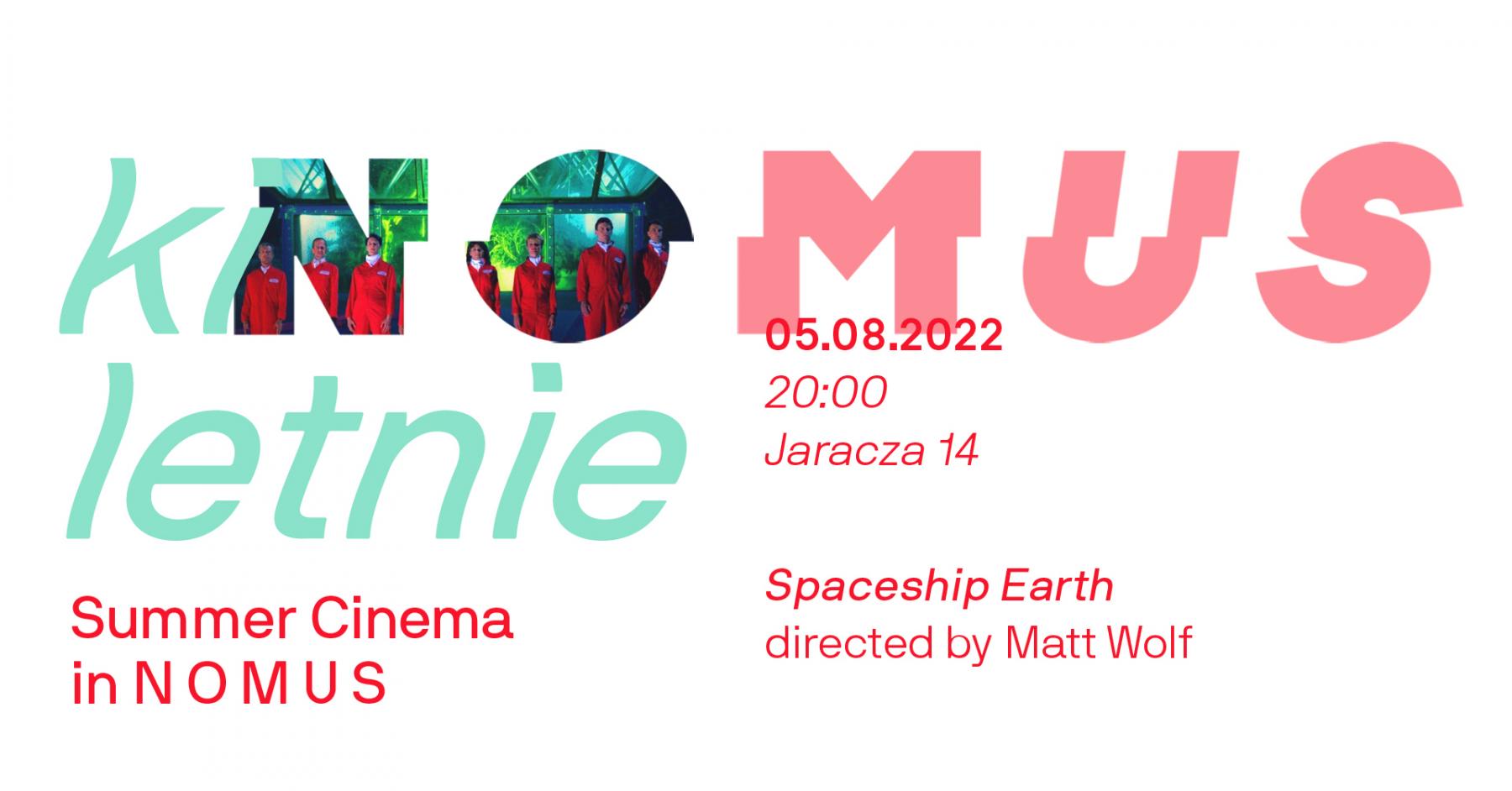Next screening: 19/08/2022 at 20:00
More Human Than Human
During the summer film screenings at NOMUS, we will show pictures about the relationship between man and nature and the impact of technology in the face of dynamic climate change.
The series begins with River, a visual story about the evolution and influence of rivers on the shaping of contemporary communities, shown from a bird’s perspective. Spaceship Earth deals with the issue of understanding the principles of ecology and the place of man on Earth before beginning the colonization of space. In the face of the development of artificial intelligence, we have More Human Than Human, a film about the dilemmas faced by scientists. In turn, The Flower of Happiness will introduce us to the mysterious world of a minimalist and sterile laboratory in which we observe the consequences of human intervention in the world of nature.
With the summer film series, we begin a long-term project during which we will observe, research and critically reflect on ongoing climate change through the prism of an interspecies community.
Curator of the film series: Aleksandra Grzonkowska
Films in their original language versions with Polish subtitles.
Film descriptions courtesy of Against Gravity.
Free admission to all films.
The screenings take place in the auditorium.
Join us!
Screening dates: Fridays
July 29, 22, noon 20.00 – The River
August 8, h. 20.00 – Spaceship Earth
August 19, noon 20.00 - More Human Than Human
August 26, noon 20.00 - Flower of happiness
River
dir. Jennifer Peedom
Australia, 2021, 72 minutes
A visually spectacular film about the role of rivers in the modern world, narrated by Willem Dafoe and with music by, among others, Radiohead. Rivers have always shaped the Earth, have flowed across continents, sculpted the landscape, as well as our needs, cultures and dreams. These arteries of the world are the arteries of humankind - a rich source of life without which humans, animals and plants would quickly perish. The film is a bird's eye view of humanity's relationship with rivers. It takes us on a journey through time and space, showing rivers on an unprecedented scale and from an unusual perspective.
Spaceship Earth
dir. Matt Wolf
USA, 2020, 115 minutes
The film tells the story of a group of environmentalists and thinkers led by John Allen. This renaissance man, the founder of a community of free thinkers in New Mexico, thanks to funds entrusted to him by his friend, billionaire Ed Bass, created a huge research project called Biosphere 2 in the early 1990s. The project’s goal was to recreate the dominant climatic zones on Earth on a microscale (jungle, desert, lowlands and ocean with a coral reef) with their typical animals, birds and insects. Researchers locked themselves up in Biosphere 2 (Biosphere 1 being the Earth) in the Arizona desert for two years. They took energy from the sun and natural gas. It was supposed to be a kind of Noah's Ark, helping people understand the laws of ecology and their existence on Earth, and also to be a test for many fields of science before colonising the cosmos. The moment the crew locked themselves up in Biosphere 2 in 1991 was broadcast by television all over the world. However, the reality of being locked up verified the dreams of even a carefully selected team.
More Human Than Human
dir. Tommy Pallotta, Femke Wolting
Belgium / Netherlands / USA, 2018, 79 min
The filmmakers decided to build a robot that would replace them as filmmakers. They design, develop and program artificial intelligence to see if it will be able to interview them. Because if a robot can learn to fold a towel on its own, then maybe one day it will also be able to perform an operation or wage war. The film initiates a debate about the potential of artificial intelligence. It also confronts us with the ethical dilemmas about how AI is programmed and the values behind the work of scientists.
The rapid development of artificial intelligence and its significant impact on our lives is a fact. It used to be the domain of science fiction and futuristic visions, but today it is part of our reality. Self-propelled cars, target-seeking drones, technologies that allow governments to collect our personal data - we're surrounded by intelligent machines. More and more often, we expect them to get to know us and understand and anticipate our needs.
Scientists predict that within 15-30 years, an ordinary home computer will turn into a human-like intelligent machine. On the one hand, artificial intelligence is a triumph of the human mind. But we should prepare ourselves for the serious social and ethical ramifications of its creation.
The Flower of Happiness
dir. Jessica Hausner
Germany, 2019, 100 minutes
Botanical thriller? Dystopian horror? Family drama? Social satire? Jessica Hausner's (director of Lourdes) first English-language film is as unpredictable as she is. Alice (Emily Beecham) is an ingenious biotechnologist and workaholic who has no time for relationships - she rejects, among others, the advances of her co-worker (Ben Whishaw). She manages to grow an experimental, genetically modified flower in the laboratory, which emits a scent that causes people to release oxytocin, which puts them in a happy mood. However, the cultivation is getting out of hand– An unprecedented pandemic of happiness and carefreeness erupts around Alice. Her beloved son (after whom she named the plant “Little Joe”) is one of the victims. The woman begins to feel more and more alone and trapped. She gets the impression that everyone else lives in a different dimension, and the company focuses on multiplying the profits from the sale of her invention. The plot, which takes place in aseptic and comely interiors, prompts reflection on the ethical limits of science and the psychological condition of Western society, plunged into depression and using artificial means to improve its well-being en masse. The Flower of Happiness was nominated for the Palme d'Or in 2019. Emily Beecham received the Best Actress Award for her performance.





